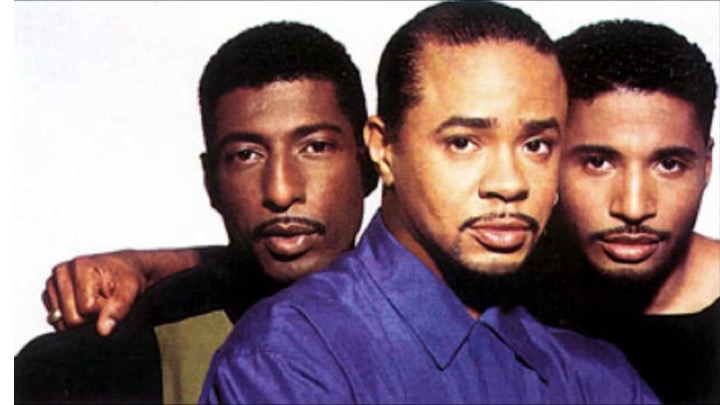 Melvin Edmonds, a founding member of 90's R&B group After 7 and older brother of Kenny "Babyface" Edmonds, died Saturday following a unidentified illness and a series of strokes. He was 65.
Melvin Edmonds, a founding member of 90's R&B group After 7 and older brother of Kenny "Babyface" Edmonds, died Saturday following a unidentified illness and a series of strokes. He was 65.
His death was confirmed by his son, also named Melvin.
After 7 landed three singles in the Top 20 of Billboard magazine's Hot 100 chart in the early 1990s: "Can't Stop," "Ready or Not" and "Heat of the Moment." A 2016 comeback album, "Timeless," sent three songs — "Runnin' Out," "I Want You" and "Let Me Know" — into the Top 10 of Billboard's adult R&B songs chart.
In 1988, Melvin's brother Babyface and longtime music executive, Antonio "L.A." Reid entered into an artist development agreement with Virgin Records and approached After 7 about signing with the label. With some hesitation because they were in their 30s, the signed the group anyway, which resulted in their smash self-titled debut record. It became a smash on both Soul and Pop radio, yielding three hits, including the chart-topper “Ready or Not.” After 7 went on to become a consistent, if understated, charting act, scoring moderate hits with “Nights Like This” (from The Five Heartbeats soundtrack) and a nice cover of “Baby I’m For Real” before landing a major crossover hit in 1995 when Babyface returned to the production and songwriting helm with the wonderful midtempo number “Til You Do Me Right.”
After 7 was nominated for a Grammy in the category of best R&B performance by a duo or group for 1990 single "Can't Stop." After 7 won an NAACP Image Award for best new male artist or group that year.
African-American men are at greater risk of having a stroke than any other group of men in the United States. Compared to white men, they are twice as likely to have a stroke, have strokes at younger ages, die from stroke, or have a stroke-related disability that affects their daily activities.
These facts may sound alarming, but there is some good news: Up to 80% of strokes can be prevented. This means it is important to know your risk of having a stroke and taking action to reduce that risk.
Here's a few reasons why are African-American Men at Higher Risk?
- Two out of five African-American men have high blood pressure - a main risk factor for stroke. High blood pressure
often starts at a younger age and is more severe in African American men than in white men. African-American men with
high blood pressure are also less likely to have it under control.
- People with diabetes are at higher risk of stroke. One out of seven African-American men has been diagnosed with...
... diabetes; and many more have the disease but do not know it.
- Sickle cell anemia is the most common genetic disorder in African Americans and can lead to a stroke. Strokes can occur when sickle-shaped cells block blood vessels to the brain.
Melvin exited the lineup of After 7 following the release of the group's third album, "Reflections," in 1995. His son, Jason, joined Kevon Edmonds and Mitchell in After 7 when the group re-emerged as a touring entity following Kevon's solo debut, 1999's "24/7."








